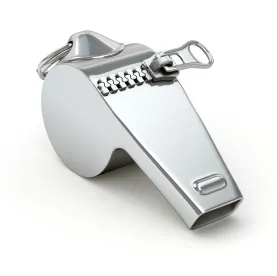The Department of Justice (DOJ) recently announced the settlement of a qui tam lawsuit against security services company Centerra Services International Inc. (formerly known as Wackenhut Services LLC) in relation to their violation of the False Claims Act. According to the allegations of the case, from 2008 to 2010, Wackenhut engaged in government programs fraud by routinely overbilling the government for the firefighting and fire protection services that it provided to the United States military bases stationed in Iraq.
Headquartered in Palm Beach Gardens, Florida, the Centerra Group website describes the company as the “world’s leading international government solutions group” and one of the top providers of security services to the United States Government. Centerra provides various services to its clients on a contract basis, including nuclear security protection, fire protection, and emergency management. The company’s website states that it has over 300 contracts with various government agencies, including the Departments of Defense and Homeland Security, as well as municipalities and other commercial clients.
Wackenhut worked cooperatively with the Army’s primary contractor, Kellogg Brown & Root Inc. (KBR) as a subcontractor, providing fire and emergency protection services to the Army’s bases in Iraq. Under the third contract of the Army’s Logistics Civil Augmentation Program (LOGCAP III), the bills from Wackenhut passed from KBR directly to the United States Government.
Realtor Gary Reno filed the qui tam lawsuit in the Eastern District of Texas on behalf of the United States Department of Defense in August 2010. In the original Complaint, Reno alleges that KBR and Wackenhut engaged in various fraudulent schemes, including billing expenses for military sites that had closed, separating overhead costs from the fixed-priced hourly rates, and submitting invoices for 100% of the personnel when only 80% of the staff was present, resulting in $28 million in overbilled personnel expenses. As the Complaint asserts, the deceptive practices of KBR and Wackenhut are in direct violation of the False Claims Act. Both companies allegedly engaged in government programs fraud, and in particular, defense contractor fraud, by collecting millions of dollars from the government through false billing statements and claims.
Recently, Centerra settled the lawsuit for $7.4 million dollars. As a qui tam whistleblower, Reno is entitled to a portion of the settlement, known as the relator’s share, and he will receive approximately $1.3 million.
If you have information concerning a potential case involving a company or individual committing government programs fraud, do not hesitate to take action. It is possible that you might be able to bring your own qui tam lawsuit under the False Claims Act, acting as a whistleblower on behalf of the US government. Before filing your lawsuit, be sure to consult with an attorney familiar with the intricacies of the False Claims Act and qui tam lawsuits, as these attorneys are best equipped to help protect your rights and help you gain your share of any monetary reward from a potential settlement.




 />i
/>i

